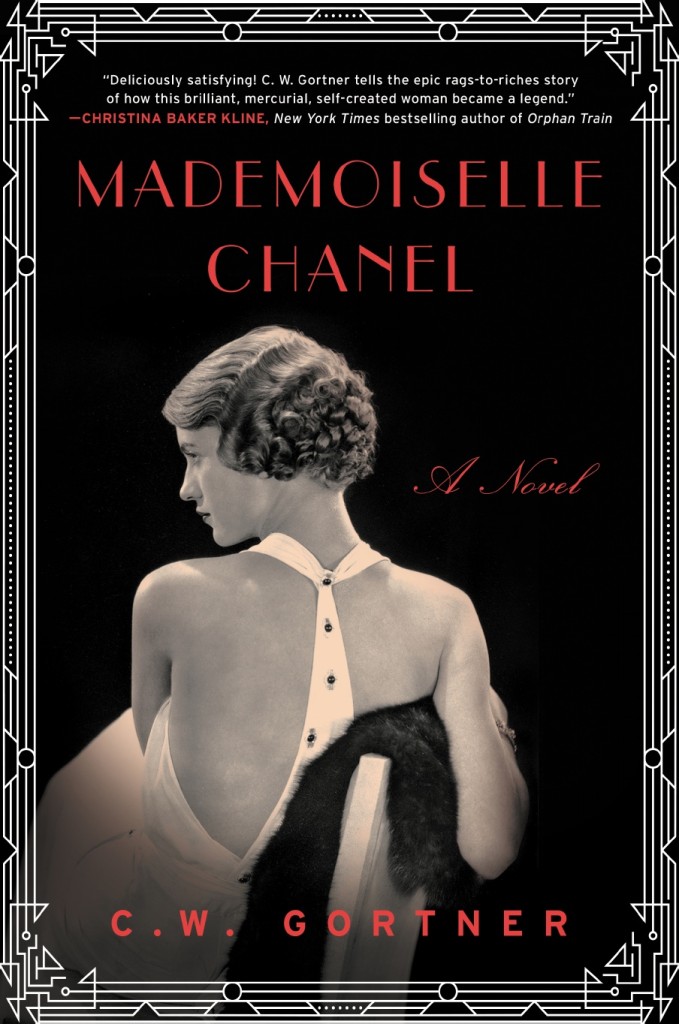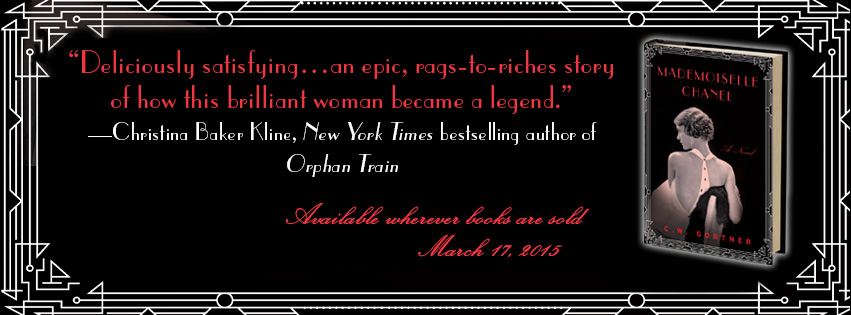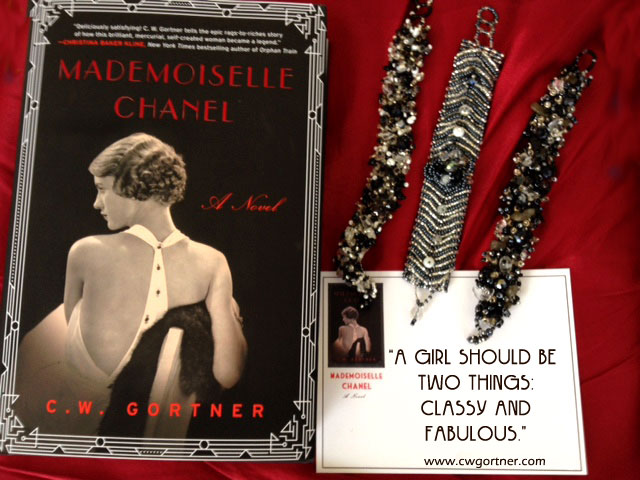Publication Date: September 2013
CreateSpace
Formats: eBook, Paperback
186 Pages
Genre: Historical Fiction/Young Adult
Munich, 1938, Nazi Germany. War is on the horizon. A timid Hitler Youth member contracts polio. Photographs she takes of fellow polio patients are turned into propaganda, mocking people with disabilities. She is now an outsider, a target of Nazi scorn and possible persecution. Her only weapon is her camera.
This well-researched historical fiction novel unveils a seldom-seen side of the Nazi agenda. A sequel is in the works.
Praise for Risking Exposure
“…an engaging, well written, thought provoking book. It reminds us of the responsibility we have to one another.”
“The story is true to history and would be ideal for a classroom studying this time period.”
“…you find yourself think thinking of the young character, Sophie, long after the last page.”
“… lets us see a world in which we know what happened, but Sophie does not yet. Our knowledge makes us want to read to the very last word–and wish the story would continue.”
“This book felt like I was reading a biography, the characters and story were all very real. Risking Exposure was certainly geared towards young adults, but this story captivated me from the beginning til the end – so it most certainly can hold the attention of an adult audience.”
“Ms. Moran is opening the door to this thought: if more (maybe only a handful more) people stood up and did small things too, could some of the awful suffering of this era been averted or lessened? And more poignantly, how about today? The book ratifies the importance of small actions done with love, bravery, and purpose.”
“Sophie is still on my mind days after finishing this book.”
”…the book was a beautiful collection of thoughts, historically accurate bits of data, and a easy read in terms of the flowing writing style, but deals with a lot of heavy topics in a censored way. This is definitely a great book to study, for school students, as it’s written in a simplistic yet effective writing style, and provides a brilliant coming-of-age story for all types of audiences.”
“There is so much to talk about in Sophie’s story – – what we accept as normal, what society thinks of its less able-bodied citizens, whether one person can really make a difference… we read it for our own book club discussion next month — and we’re all well past our teen-age years, so that shows the power of this small gem.”
Excerpt
Chapter One
Snapshots
Munich, Germany
16 April 1938, Saturday
When Werner ordered me to grab my camera and follow him into the woods, I obeyed. He was the Scharführer, the Master Sergeant. What else could I do?
My best friend Rennie bolted to her feet alongside me. “You don’t need to go everywhere Sophie does, Renate,” Werner said to her in his usual high-pitched whine. But she ignored him and winked at me as we crashed through the underbrush. Rennie got away with a certain level of disobedience. Younger sisters can.
But I wasn’t Werner’s sister. I couldn’t risk it.
The three of us scared up rabbits and birds as we tromped along. We stopped at a small shed, and there in a hollow lay a large dog the color of a golden sunrise. Several clumps of fur wriggled against her belly.
“Puppies!” Rennie rushed over, dark curls bobbing, squatting so close that the mother lifted her head and growled. Rennie stood and stepped back, her smile undimmed.
Werner crossed his arms as if warding off disease. “The mother doesn’t have a tag. Probably a stray.”
I watched the tiny pups. Two were still, probably sleeping, one of them pale like its mother. Three others squirmed and nursed, their eyes still closed, their coats dappled in shades of brown and black. “How old do you think they are?” I asked.
Werner didn’t answer, just pointed at the ground a short distance from the mother’s muzzle. “Photograph that, Adler.”
A dark pup, its limp body camouflaged by dirt and decaying leaves. Rennie squatted beside it. “Poor little thing.”
I hurried my eyes away from the pitiful creature. “You want a photograph of a dead puppy?” I asked.
“It’s an example of nature’s way. The mother rejected that pup because he’s deformed,” he said, his tone matter-of-fact. “He’d do nothing but waste the milk meant for the able-bodied. A useless eater.”
A breathy objection came from Rennie. “That’s so cruel,” she whispered.
But I didn’t say anything. I just pulled out Papa’s camera and began to adjust my settings. I’d have to look at the poor thing through the camera lens. It might make me sick to my stomach.
Then Rennie’s voice brightened. “I think the pup’s alive,” she said. I lowered my camera.
She cooed at the creature as she made a small bed of leaves around it. Then she lifted and nestled the pup, leaves and all, at the mother’s teat, whispering soothing words the whole time. The tiny pup raised its wobbly head and searched until its mouth found nourishment. That’s when I saw the deformity – one of the pup’s hind legs was mangled, not bloody but sickeningly crooked. This puppy would never walk. I had to turn away.
Werner stepped back and stared at his sister, disgust clear in his squinted eyes and pursed lips. “You’re interfering with the natural order of things. Back to camp. And make sure you wash. Who knows what contamination…” He stalked off, shuddering.
As we followed, I stole a backward glance. The mother was using a forepaw to nudge the deformed pup away from her belly, away from her milk. I hurried to catch up with the others.
Rennie and I wove through clusters of boys working in their dirt-streaked uniforms, past rows of tents and campfires. One tent sat apart from the others. It was turned about-face so its back faced the campfires and its flaps faced the woods. Rennie gestured toward it with her thumb. “Werner’s,” she mouthed. I giggled.
Sure enough, a flap opened and he stepped out, straightened, and marched to the nearest fire. As usual, he was immaculate, his frame, short and wiry for an eighteen-year-old, neatly tucked into a crisp spotless uniform and gleaming shoes. I glanced down at my own scratched shins, the muddy streaks on my leather shoes and the burrs and twigs stuck to my blue uniform skirt. How did he freshen up so quickly? Did he have a clothesline full of pressed uniforms in that tent? I wanted to ask Rennie so we could share another giggle, but his march took him right past us.
He glanced down his long thin nose to his watch. “It’s twenty minutes before meal time,” he announced to no one in particular. “Are all the girls’ troops here?”
Anna, leader of our girl’s Jungmädel troop, rose and threw her shoulders back. In an identical announcement tone, she said, “The other troops and their leaders are late. My troop is the only one here on time.” She kept her gaze on Werner, no doubt waiting for a compliment about her efficiency. When a few heartbeats passed and the compliment didn’t come, she deflated onto a fireside rock.
Rennie whispered, “Anna should forget about nursing school and take up acting.”
“But not for an audience of children,” I added. In a few days, Anna was leaving her role as Jungmädel leader and none of us girls would be sad to see her go. With us, she’d always been quick with a harsh scolding and slow with a kind word. When adults commented how polite and disciplined we were, she’d smile and soften her voice and tell them how it was all because of her. She alone had sacrificed and slaved to mold us into the fine young girls we were. She alone had taught us to listen and be respectful and responsible. As if our parents hadn’t done that from the day we were born.
Rennie agreed. “She puts on a great show for adults.”
“Maybe her patients will appreciate her drama,” I said. But I doubted it.
Using a thick cake of brown soap, we washed at an old water pump near the campsite. Trudi, one of the youngest girls in our Jungmädel troop, ran up, out of breath. She worked the pump handle to splash the icy water into her filthy cupped hands, then slurped it eagerly.
“What are you doing?” I asked, a little disgusted.
She looked sheepish. “Getting a drink. Lost my canteen.”
I didn’t want to sound like Anna, so I spoke more gently. “You need to wash with soap and water before you drink from those hands.” I pulled my canteen from my rucksack and let her drink all she wanted, then refilled it from the pump. “We can share this,” I shook the full canteen, “until we get home.”
“You won’t tell Anna?”
“It will be our secret,” I told Trudi. No sense Trudi getting scolded for an honest mistake. In a few days time, neither of us would ever have to deal with Anna again.
The girls from my troop were scattered among a few different campfires. Trudi joined her little friends where they huddled together, giggling and pointing at the older boys. Rennie gestured toward an adjacent fire and we settled on a couple rocks. That’s when I noticed the person stirring the cook pot at our fire was Erich. Erich the Beautiful I called him, but he didn’t know that. I felt heat rise to my cheeks and groaned inwardly.
Erich looked up and swept his chocolate eyes between us, smiling. When he spoke, the small cleft in his chin danced. “Food’s almost ready.”
I was determined to act naturally, not to let on that my pulse was racing. “Smells good. Stew?”
He nodded. “Real campfire stew. Bits of potatoes and carrots, an onion or two, a little meat. Some wild mushrooms collected by that troop,” he poked his thumb toward a nearby cluster of boys.
My stepbrother Klaus folded his long frame onto a rock across from me. Rennie chattered to him, sharing details of the exhibit we’d seen earlier that day before we arrived for the cookout. When Rennie took a breath, Klaus turned to me. “You’re quiet today, little cat.”
Before I could answer, Erich spoke up. “I’ve always wondered, Klaus,” he said as he placidly stirred the stew, “why do you call Sophie ‘little cat’?”
One corner of Klaus’ mouth lifted and I turned my hot face to the ground. “Sophie used to have this little cat, Minka. When all was quiet, Minka roamed the house, catching mice downstairs in the bakery, sitting in sunbeams in plain sight. But the moment there was trouble, zoom!” he slid one palm forward over the other, “that cat ran and hid and couldn’t be found.” He smirked. “Sophie’s the same way.”
Erich stared at the pot, and thankfully the awkwardness ended when Marie and Uta greeted us and perched on nearby stumps. Marie was quite an athlete, keeping her dark hair cropped short in a no-fuss, always-ready-to-run style. If Uta weren’t my friend, I’d be jealous of her beauty and confidence. She filled out her white uniform blouse and blue skirt with womanly curves. She smiled flirtatiously as she chatted with the boys at our fire, tossing her nut brown hair and drawing their eyes to the places where its waterfall landed.
We were all fourteen, Uta and Marie and Rennie and me. The three of them had developed, blossomed as my mother would say. Not me. I still had a little girl’s contour, pencil straight from top to bottom. I lifted the stubby ends of my straw colored braids, flaring below their elastics like bristles of a paintbrush. I tossed them behind my shoulders.
“So, what will you boys compete in tonight?” Marie flashed her best smile at my stepbrother. She recently started talking about Klaus’ defined muscles, the wave of his sandy hair, and the sky blue of his eyes. She was getting as boy crazy as Uta. “Are you boxing, Klaus?”
He nodded and grinned. He’d won a dozen ribbons in Munich boxing competitions. “Boxing and throwing.”
“Throwing?”
Klaus peered at her. “We throw rocks for distance and accuracy. It’s training for the real thing.”
“The real thing,” Marie repeated, obviously not understanding.
“Grenades.” He grinned at Marie’s raised eyebrows. “Does that shock you?”
She nodded. It shocked me as well. I kept forgetting that in another year, Klaus would enter the Wehrmacht, the German Army.
Erich’s friendly tone broke the serious mood. “I’m in two races – a wheelbarrow race and a three-legged race.”
Klaus sniffed and steadied his gaze on Marie. “Who’s more prepared to restore Germany’s honor, someone who runs a three-legged race,” he glanced at Erich, “or someone who can throw a grenade to a target?”
Erich didn’t follow Klaus’ lead. “Half the fun of the three-legged race is messing up and falling,” he said smiling. “What happens if you mess up with explosives? Pshew!” He blew air past his teeth and threw his hands in the air. Rennie and I giggled, but Marie and Uta didn’t. Neither did Klaus.
Three more Jungmädel troops arrived at the campsite and Werner’s accusing whine echoed above the chaos. “You’re late.” He stood atop a rock, hands on hips, overseeing all. “Find a seat so we can eat.” The girls and their leaders hurried to obey.
As Scharführer, Werner was the leader of five troops of Hitlerjugend, Hitler Youth boys aged fourteen to eighteen. Even though each girl’s troop had its own female leader, he was also in charge of us somehow, all Youth from our Munich neighborhood, boys and girls ages ten to eighteen. That meant he’d still be in charge of us fourteen-year-old girls when we pledged to BDM, Bund Deutscher Mädel, the Hitler Youth branch for girls fourteen to eighteen, in a few days. Once I pledged, I’d be the official Youth photographer for all the troops in our region of Munich. I could hardly wait.
A few of the youngest girls from my troop wandered over looking for a place to eat, including Trudi. I gestured her to sit next to me, then slipped my canteen between us so we could share. She glanced around, looking for Anna no doubt. Once she saw that Anna’s attention was fixed on trying to catch Werner’s eye, she relaxed. She smiled at me a few times as she sipped from my canteen. We ate our stew in peace.
We were nearly done when the last group of girls finally showed up. Werner’s voice cut through the dinnertime chatter. “Falling behind may have cost you girls your dinner. When those who were here on time have finished, you latecomers can eat what’s left. If there is anything left.” He looked toward our campfire. “You, Lange!”
My stepbrother bolted to his feet, his mess kit clattering to the dirt. “Ja!”
“Oversee the clean-up of the meal. Activities begin in,” Werner glanced at his watch, “fifteen minutes.”
“Ja, mein Scharführer!” Klaus strode down the rows of tents, barking orders as mess kits, spoons, and pots clanked and banged.
“You, Adler.” Werner pointed at me. “Take photos of tonight’s activities for our newsletter.”
Quite an honor since I wouldn’t take my official position as Youth photographer until I pledged in a few days. I was thrilled, and Rennie squeezed my arm.
Werner’s voice whined again, and most of us turned to look at him. “I witnessed a lesson in nature today, a lesson our Fatherland has embraced.” He waited until clanking pots and background chatter halted before he continued. “A short time ago, off behind those trees, I found a mother dog and her pups.”
Several girls said “Aww.” When Werner scowled at them, they quieted and lowered their eyes.
“One of the pups was weak and deformed, a useless eater,” he continued. “Its own mother pushed it away so her good milk might be saved for pups which could grow up strong and capable.” He stared over his nose, turning slowly to face each cluster of Youth in turn. “Our Fatherland embraces this teaching from the natural world. Germany too is ridding itself of all who would pull strength,” he gestured around him, “from strong, capable young like you.”
Rennie mumbled something. Abruptly Werner said, “Did you have a something to add, Renate?”
She rose, face flushed. “I brought the deformed pup back to its mother. It was nursing when I left.”
I didn’t have the heart to tell her what I’d seen.
Werner waved a hand dismissively. “Nature will take its course. By now, the mother has probably rid herself of that burden once and for all.”
Rennie drew a breath and Erich’s brow knit, but they stayed silent. When I rinsed my mess kit a short time later, Erich ducked into the trees.
The activities began on time of course, starting with a parade. We girls sat on the ground and watched as two rows of HJ marched onto the field. I handed Trudi my canteen and faced the oncoming columns of boys with my camera.
Action shots. I wasn’t very good at action shots. Adjust settings. Click.
As the Scharführer barked commands, the boys went through maneuvers turning this way and that, performing push-ups and calisthenics, counting their repetitions in unison. I hoped the photos would show activity, not just blurry movement. Adjust settings again. Click.
The boys broke formation and sat with their troops. The competition started with the wheelbarrow race followed by the three-legged race. Click. Click.
Those of us watching cheered and hollered, urging the pairs on, and behind the camera I cheered wildly for Erich. He and his teammate finished second in both races, laughing and clapping each other on the back. Most of the boys in their troop congratulated them, but I noticed Klaus was silent, his lips pressed shut, as if concentrating on something only he could see. A still shot. My favorite. Click.
The next event, the throwing contest, involved one boy from each troop throwing a potato-sized rock. Click. Klaus won by landing his within a meter of the target. I should have been proud but as each rock thudded to earth, I pressed my eyes closed, my mind’s lens picturing an explosion.
After some great fun in a baton relay and a piggy back race, two boys from each troop readied for boxing matches. Klaus faced a boy his size, their expressions serious and intimidating. Rennie tugged at my sleeve. “He looks like a regular Max Schmeling.”
I grinned at her. “He’d be glad to hear that.” Judging by the framed magazine cover on his bedroom wall, Schmeling, a former heavyweight world champion, was Klaus’ favorite.
When Werner blew the whistle, all started normally, pairs of boys circling each other, fists at the ready. But within a minute, the five fair contests had turned into brawls with boys shoving each other, staggering, throwing punches as well as kicks. Blood and spittle smeared faces, filth covered uniforms. I watched from my safe place behind the lens, sickened but somehow unable to turn away.
I focused on Klaus. His opponent kicked him square in the shins. Klaus pounced, knocking him onto his back. They grappled and rolled in the dirt, first one of them on top, then the other. In less than a minute, Klaus’ opponent was face down and he had sprawled on top, twisting the boy’s arm behind him. The boy struggled to free himself, to push up or roll away, but Klaus overpowered him. He yanked the boy’s hair, lifting his head to reveal a bloody nose.
Beside me, Rennie made little choking sounds. I knew her thoughts were the same as mine. This wasn’t boxing; it wasn’t sport. This was a fight.
I used my camera as a spyglass to view the reactions of the other spectators. Most continued to clap and holler their approval, including Marie and Uta and Anna. Little Trudi and her friends sat near the front of the pack, faces hidden behind their hands. Erich watched in stone-faced silence, fists clenched in front of his knees.
Werner stayed focused on the fights, grinning. Finally he blew the whistle and Klaus jumped to his feet and punched his fist in the air. The winner.
It was only then that I realized – I’d watched the whole match hidden behind my camera but hadn’t taken any pictures. I might be in trouble for that.
“Last event of the day,” Werner announced as the filthy, bloodied fighters staggered and swaggered to rejoin their troops. “The only event in which our guests, the Jungmädel troops, will participate. The human pyramid.” He turned to Anna. “Your troop was the first to arrive, so the honored place at the top of the pyramid is yours. To whom does it go?”
Anna rose and straightened. “Renate Müller, mein Scharführer.”
I grabbed Rennie’s arm as she drew in a breath. Werner’s eyebrows shot up. “My sister? Indeed.” Then back to business, he gestured to the boys. “One from each troop.”
The boys pushed their representative into the open. The three largest boys hunkered on all fours, and two others scrambled on their backs to create the second level.
Werner hooked his finger at Rennie. “Come, Renate.”
She rose and slid from my grasp. Everyone bolted to their feet. Voices cheered her on, clamoring for her to hurry up the boys’ posed frames to her perch at the top.
She stepped deftly onto one boy’s back while reaching to the second row. As she lifted herself and groped for a hand hold, she teetered, off-balance. I held my breath. Several seconds passed and the boys readjusted, steadying the shifting pyramid. One of Rennie’s knees reached the back of a boy on the second row. Then she gained purchase and pulled up the other knee to settle on all fours. Once there, she grinned in triumph. A huge cheer rose and I whooshed out my breath.
From the growing shadows behind the pyramid, two pairs of figures appeared, each duo lugging a cook pot. In the blink of an eye, two pots of icy water splashed onto the backsides of those in the pyramid, dousing them, shocking them. The pyramid toppled in a tangle of screams and limbs.
I ran into the wet slippery chaos. “Rennie!” I called. “Rennie, are you all right?”
Relief coursed through me when I found her lying on her back, laughing. She brushed a clump of muddy hair back from her face. “I wondered how I’d get down.”
Buy the Book
iTunes
IndieBound
Kobo
Smashwords
About the Author
Jeanne Moran reads and writes stories in which unlikely heroes make a difference in their corner of the world. In her everyday life, she strives to be one of them.
For more information visit Jeanne Moran’s
website. You can also find her on
Facebook,
Pinterest, and
Goodreads.
Hashtags: #RiskingExposureBlogTour #HistoricalFiction #YA
Twitter Tags: @hfvbt



























